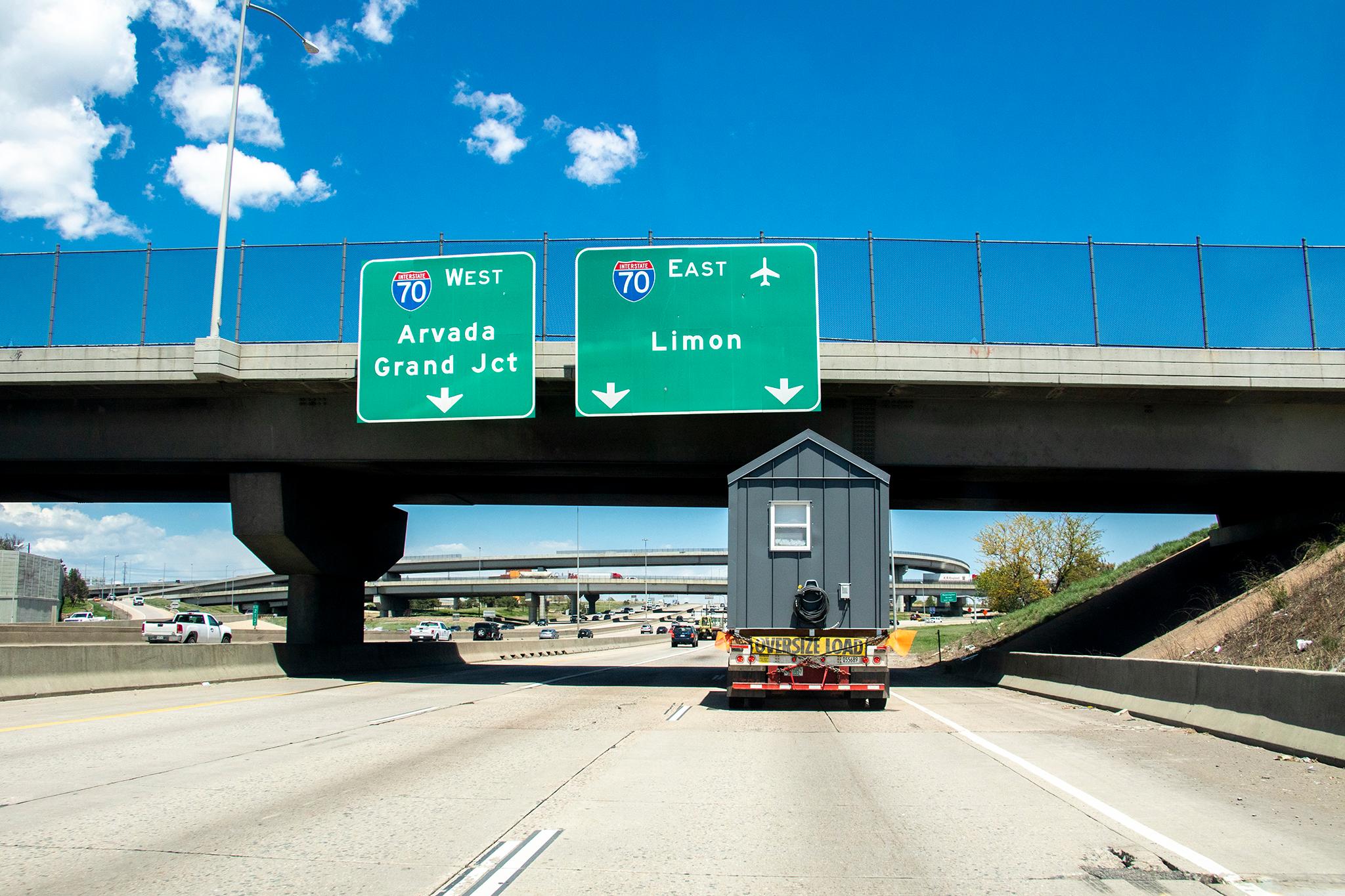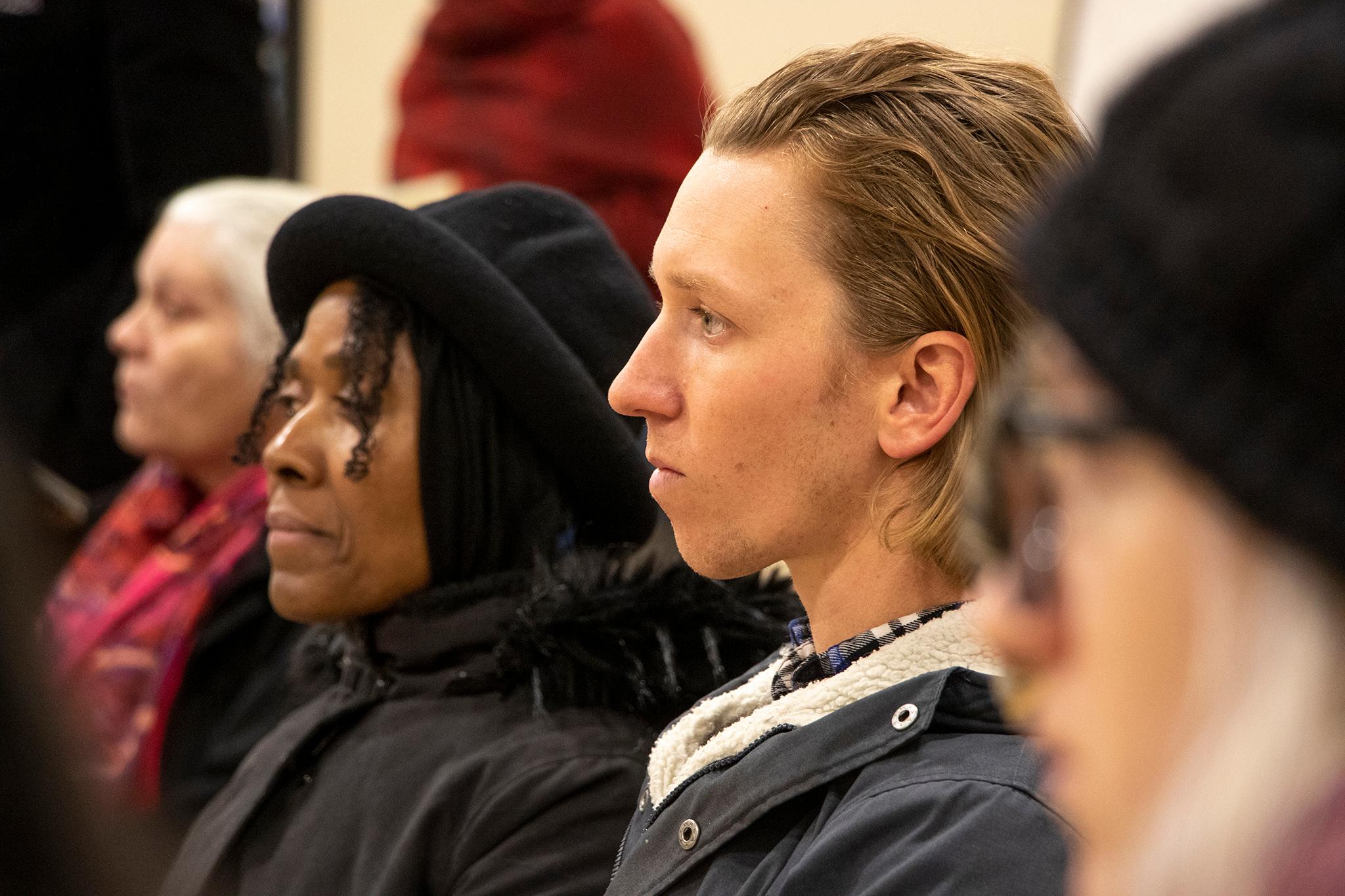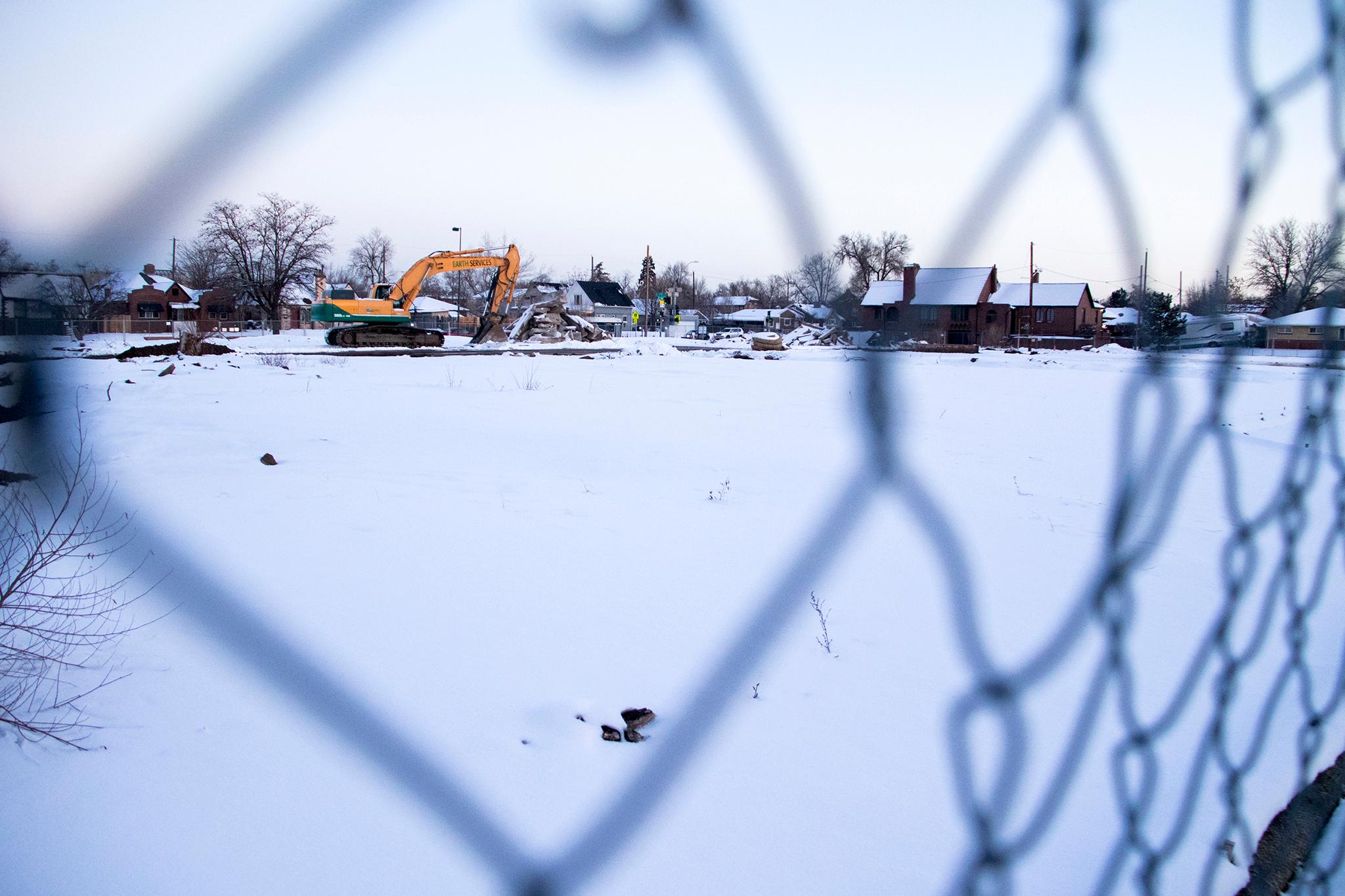A nonprofit developer's vision for a once-blighted neighborhood block in Cole ranges from a temporary tiny village for women who have experienced homelessness to permanent housing that working families can afford to buy.
"It's something new that's restoring something old," said Jeff Johnsen, executive director of Mile High Ministries, saying it was once normal for people of different incomes to live as neighbors.
Mile High Ministries, which for decades has provided transitional housing and other community services in Denver, first went public last year with plans to build 61 income-restricted apartments on the block bound by York and Gaylord streets and 37th and 38th avenues. More recently, Johnsen has been talking with affordable housing developer Habitat for Humanity about including 17 for-sale town homes at the site. And most recently, as neighbors learned Thursday at one of a series of community meetings hosted by Mile High Ministries about its project, Johnsen has brought in a third nonprofit, Colorado Village Collaborative, which wants to build a 14-unit village for women and transgender individuals at the site.
Colorado Village Collaborative piloted Denver's first tiny home village as an alternative to traditional shelters and a bridge to permanent housing, starting in 2017 on private land near the 38th & Blake RTD commuter rail station. The group's Beloved Community Village, which moved last year to 4400 N. Pearl St. in Globeville because the first site was slated for a below-market-rate housing development, recently expanded from 11 to 19 units for men and women.

The women and transgender village "is a project that we've hoped for for a long time," said Cole Chandler, Colorado Village Collaborative's co-director.
Women and transgender individuals often can't get a bed in the traditional shelter system. The congregation at St. Andrew's Episcopal Church had offered to host a tiny village for women in its parking lot at 2015 Glenarm Pl. in the Clements Historic District, but the city's Landmark Preservation Commission blocked that project in 2018 on the grounds that it had no historical precedent.
Johnsen said Cole residents who had had a good experience with the first tiny home village, at 38th and Blake, suggested a women's village at the site that Mile High Ministries calls Clara Brown Commons, in honor of a former slave who made her way after the Civil War from Virginia to Colorado, where she became a successful businesswoman and helped other former slaves start new lives.
Tiny village residents "are individuals that need a place to stay and get back on their feet and move forward," Colorado Village Collaborative's Chandler said.
He and Johnsen said they hoped that one day, village residents would move into permanent housing at Clara Brown Commons.
The idea brings to mind a complex completed across Denver in Villa Park last summer that includes a new 60-bed shelter for the women and transgender people served by The Delores Project nonprofit, 35 apartments where Delores provides mental health and other services for people coming out of homelessness, and Arroyo Village, a 95-unit apartment building managed by the affordable housing developer Rocky Mountain Communities. Women at the Delores shelter can see the apartments that might be their future permanent homes.
Mile High Ministries is still raising funds for permanent housing at the site. It could be years before the apartments and townhouses are ready for residents, Johnsen said. The village can move in in the meantime, perhaps by year's end, Johnsen said.
"It makes me so happy to think about people living there rather than a big empty lot," Johnsen said.
The lot was once owned by Douglas Bruce, the man behind Colorado's Taxpayer Bill of Rights law that restrict tax hikes who later went to jail for tax evasion. Small pink and tan homes that stood on the lot when Bruce owned it had been abandoned and were in poor condition. Bruce owed more than $1 million in liens and fines when the property was seized and sold. Neighbors say criminal activity was not uncommon in the derelict buildings, which were razed last year in preparation for the new development.
The tiny homes will be located on the part of the Clara Brown campus where a small community building is planned. That building, which could house a low-cost preschool, will be the last erected. The village will have to find another site when the campus is completed, Chandler said. The village is likely to be at the site at least two years, Johnsen said.
Chandler said plans for the village have been discussed one-on-one with people living closest to the site. Thursday was the first time the village was discussed at a larger community meeting. About two dozen people attended the meeting, and many expressed support.
Don Aguan, who owns a duplex opposite the site designated for the village, said he had lived through the troubled times when derelict buildings sat on the lot. He said plans for a tiny home village raised concerns that "addiction or crime or attracting the wrong people would happen."
"I'm not opposing the project," he said. "I just hope that it will be well-managed and maintained so that it has little to no impact on me or the community."
"I trust Mile High Ministries and what they've done for the past 30 years," Aguan said.
Some Globeville residents had vehemently opposed the pilot village's move from 38th and Blake. Since that contentious relocation, Denver's City Council adopted zoning rules to clarify the process for establishing temporary tiny home villages and to ensure communities are informed before the structures are trucked in.

Under the new rules, groups such as Colorado Village Collaborative have to hold at least one community meeting before submitting an application for a city permit. Notices about the plans must be mailed to council members in the districts where the village would be located as well as in districts within 400 feet of the proposed site and to property owners and residents who rent homes within 400 feet. Registered neighborhood organizations operating within 400 feet of the site must also get information by mail, and village sponsors must reach out to service providers such as churches in the community.
Under the new zoning rules, neighbors would not be able to veto villages that meet city criteria.
Chandler said the zoning at the Clara Brown Commons site allowed tiny home villages. He said his next steps included continuing to build community support in preparation for seeking a permit. He credited Mile High Ministries with laying a foundation.
"We're just ecstatic to be partnering with them, considering the trouble we've had in the past," he said.













